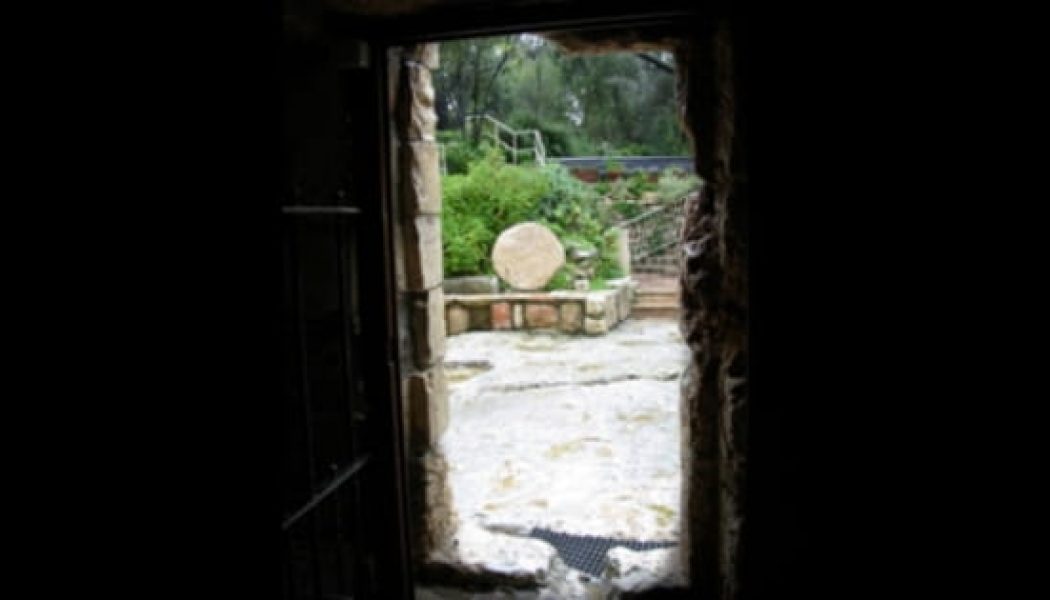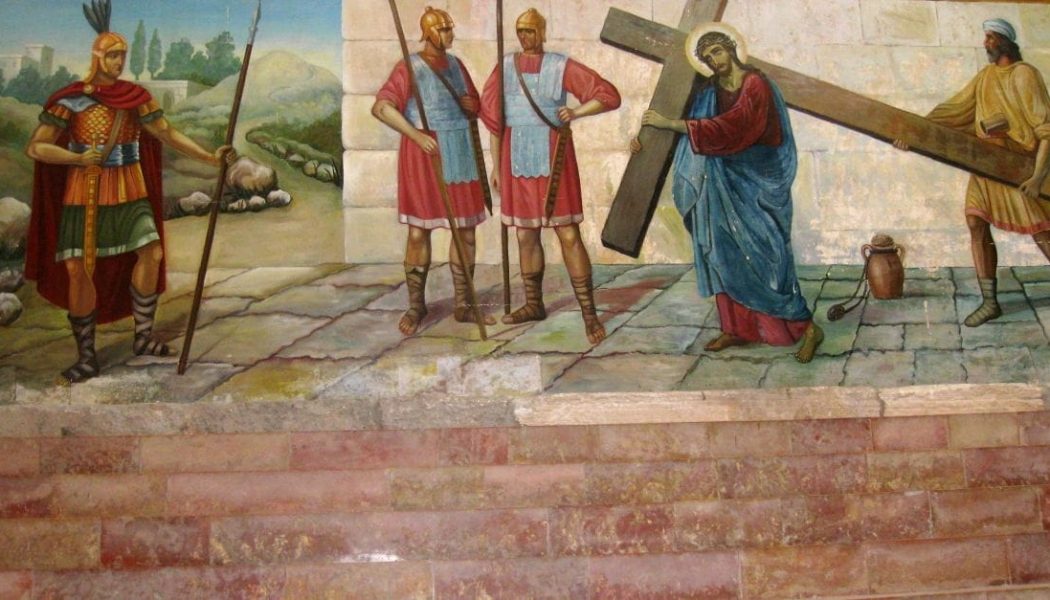Fisher of Men
Why Did Jesus Curse a Fig Tree?
“How did the fig tree wither so quickly?” (Matthew 21:20). Fig trees are for making figs. Pretty simple, really. We plant apple trees because we want apples, peach trees because we want peaches, orange trees because we want oranges, and fig trees because we want figs. We might as well ask what good is an apple tree that doesn’t produce apples? You might as well cut it down. Or curse it, as Jesus did the fig tree (Matthew 21:18-19). How did Jesus know the fig tree was barren? Because the leaves and the fruit typically appear at about the same time. To see a fig tree covered with leaves but with no fruit meant that it was barren. Three insights will help us understand this story. First, in the Old Testament the fig tree often stood as a symbol for the nation of Israel ...
Who Is Really to Blame for His Death?
People have for centuries argued about who was to blame for killing Jesus. Sadly, some have even used the issue to justify anti-Semitism, blaming the entire Jewish race for the death of jesus christ. But ultimately Jesus was not a victim of either Rome or the Jewish leaders. The apostle Peter says in Acts 2:23 that Jesus was “delivered up by the predetermined plan and foreknowledge of God.” The Jewish leaders and the Roman official who carried out His crucifixion undeniably bear guilt for the sin of what they did, but God Himself had foreordained how and when Jesus would die. Yes, the Jewish leaders of that day who condemned Him were culpable. They plotted, concocted false charges against Him, and blackmailed the Roman governor Pontius Pilate into carrying out their will. They ...
Jesus Is “The Firstborn from the Dead?”
At the beginning of the book of Revelation, John writes this greeting to the churches he’s addressing: Grace to you and peace from him who is and who was and who is to come, and from the seven spirits who are before his throne, and from Jesus Christ the faithful witness, the firstborn of the dead, and the ruler of kings on earth. (Revelation 1:4) The title “firstborn of the dead” for Jesus is of great theological importance, especially with Easter in the background. The Greek word for “firstborn” that John uses is prōtotokos, a word that literally refers to birth order—the first child born. This is a concept of great significance in the Old Testament, where the firstborn son inherited his father’s place as head of the family, receiving the father’s blessing and a double portion&n...
Why the Arguments for Gay Marriage Are Persuasive
With two landmark gay marriage cases before the Supreme Court we are already seeing a flurry of articles, posts, tweets, and status updates about the triumph it will be when America finally embraces equality for all and allows homosexuals to love each other. These tweets and posts and articles perfectly capture the reason why the arguments for gay marriage have become so persuasive so fast. Given the assumptions and patterns of thinking our culture has embraced in the last fifty years, the case for gay marriage is relatively easy to make and the case against it makes increasingly little sense. I don’t think the arguments or gay marriage are biblically faithfully, logically persuasive, or good for human flourishing in the long run, but they are almost impossible to overcome with most Americ...
Is Easter Too Violent for Children?
Every year, around this time, parents and churches ponder how to communicate the Easter story to children, as something more than dyed eggs. The problem is, of course, that it’s impossible to talk about the resurrection of Jesus without talking about death. And, in the case of Jesus, it’s really hard to talk about death without talking about crucifixion. Some churches resolve this tension by deeming the cross too violent for kids. They talk instead about Easter meaning that Jesus is our “forever friend.” They say that Jesus “went away for a little while, and his friends were sad,” but that he soon “came back to see them.” Most Christian churches, thankfully, still speak on Easter of the cross and the resurrection, but in many places this is, ...
Easter Sunday Is Over, Now What?
Perhaps you are asking that this week as you return to your day-to-day responsibilities. If there’s one thing that the past few days’ focus on Christ’s cross did, it’s remind most of us how unfocused we’ve been on the death and resurrection of Christ. We look back with grief over the way we yet again allowed the blood of Christ to slip to the periphery of our lives and let many other lesser things in to replace it. Why did we let it happen again? More importantly, how can I stop it happening again? Here are eight directions to help you live a cross-centered life: 1. Have Easter every week As far as we know, the New Testament church did not celebrate Easter once a year. They celebrated it every week; on the first day of the week to be exact. Every Sunday, they gathered to commemorate Christ...
More Blessed to Give Than to Receive?
For several years of blogging I had it all wrong, and I wasn’t wrong only in blogging, but in all of life. I believed that the way to measure success with this blog was to keep an eye on statistics, to measure growth in readership over a period of weeks or months or years, and to do the things that were necessary to stimulate that kind of growth. Where I saw growth in the number of readers I believed I had succeeded and where I saw a drop in the number of readers I believed that I had failed. But somewhere along the way I came to understand and to reflect on a much bigger and wider principle that applies not only to blogging but to all of life. It is the principle that it is more blessed to give than to receive (see Acts 20:35). This is hardly an obscure passage or a verse that Christ...
Should Only Baptized Christians Take Communion?
In a recent worship service in our church, I invited all “baptized believers” to join us at the Lord’s Table. That prompted a question from several people: why say, “baptized believers?” Is baptism really a prerequisite for taking communion? Of course, not all churches would answer this in the same way. But the majority of Christians throughout history have believed that only baptized people should participate in Eucharistic meal. I think it’s a biblical position, and here’s why. The Meaning of Baptism and the Lord’s Table (Communion) There are two sacraments given to the church, baptism and the Lord’s Table, but these serve different functions.[1] Meaning of Baptism Baptism is a one time event that signifies: identification with Christ, initiation into the Christian faith, and entra...
What Rowling Said about Dumbledore
“I always thought of Dumbledore as gay,” said author J. K. Rowling about Albus Dumbledore, one of the good guys in all seven of her harry potter novels. Unlike the way he is portrayed in the movies, Dumbledore is neither bumbling nor weak. He is commanding, authoritative, strong, sure, and only defeated by superior forces, never inferior ones. Dumbledore didn’t die because he made mistakes or because he absentmindedly mismanaged some magic. He died because he laid down his life, playing his appointed part in the outworking of a grand providential plan into which he had remarkable insight. How do we deal with the information that Rowling has given us? How do we respond to her declaration that she thought of him as gay? This calls for wisdom. We should ask, I think, at least two questions: (...
The Danger of Bible Character Studies
Excerpted from suburbianity (Harvest House Publishers, 2013) Now these things took place as examples for us, that we might not desire evil as they did (1 Corinthians 1:6). We do the weirdest things to the Bible in the absence of the cohesive theme of redemption. No other book is treated so recklessly by people who honor that same book so greatly. Among our favorite rewrites are character sketches. Character studies are a staple of popular Christianity. We use the above exhortation of Paul to the Corinthians to justify such a translation. Almost universally we believe that Paul’s point is to encourage our pursuit of the moral character of fallen human beings. We seem to forget the fact that the example he offers was one to be avoided. Despite this we like to examine the lives o...
Following Jesus Puts You on the “Wrong Side of History?”
[A fictional conversation from the first century A.D.] Stefanus: I wish you would change your mind, Gratian. You are going to be made fun of and marginalized. Gratian: Any suffering or ostracism I may face will not compare with the glory that awaits me. Stefanus: Glory? I fear you are losing your mental grasp of things. Have you not seen the splendor and glory of the Empire? Don’t you see how Roman principles are extending throughout all the earth? Gratian: The Empire looks powerful, yes. But God’s kingdom will outlast it. Stefanus: Surely, you jest! Gratian: Jesus said so. Stefanus: You continue to speak about this backwoods Jew who taught all sorts of strange things. I fear for what may happen to you when you refuse to pinch incense at the altar and rev...
Facing Up to a Fallen World
The Bible is honest about life in this fallen world. This honesty is a sign of God’s love. He’s the wise and gentle father preparing his child for that walk through a tough neighborhood on the first day of school. He’s the faithful friend praying with you before you face an unusual challenge. He’s the caring physician informing you of what to expect from the disease he’s just diagnosed. A primary goal of all this diagnosis, description, warning, comfort, and counsel is to call us to certain ways of living. Why would you need to be “completely humble and gentle; be patient, bearing with one another in love,” (Ephesians 4:2) if you were not living in a community of flawed people where this kind of character is essential? Relationships in a fallen wor...























